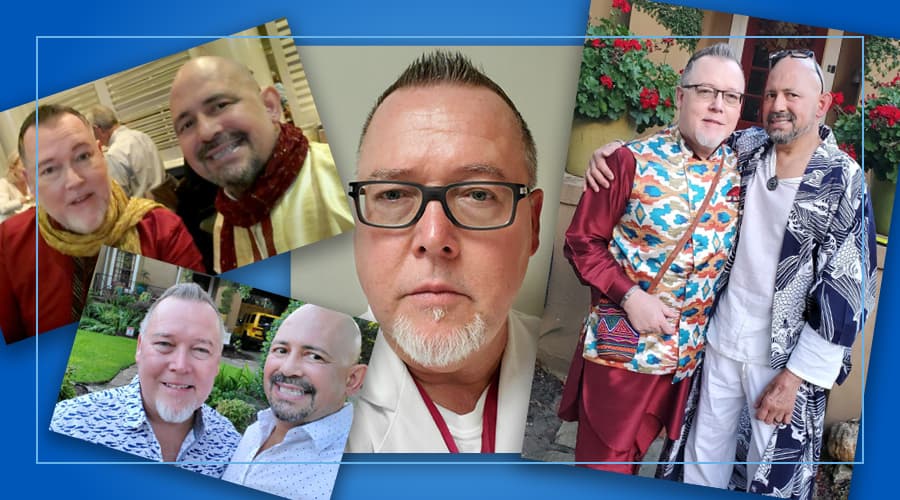By Daniel Smith, Nurse Practitioner, St. Francis – Emory Healthcare, Columbus, Georgia
First, I want to share a little personal background about myself. I am an openly gay man who fully came out at the age of 38. I am a nurse practitioner and have been practicing since 1997. Through the years I have witnessed both sad and joyful times. It has not always been easy to be open. There was a time in which I had to conceal it.
I have been employed by TeamHealth in different roles since 2006. In each situation, I have felt supported and recognized regarding my choice to live as an openly gay man. I am so joyful that I get to work for a company that allows me to practice and that diversity is protected and even celebrated at TeamHealth.
I am fortunate to be married to a great husband, and we have a well-rounded and kind son. We live in a neighborhood that has largely accepted us. There are mountains yet to climb, but we have come so far from where we were. I hope that I have been and will be a role model for those around me who need to see that it is possible to overcome obstacles and achieve dreams.
I currently work at St. Francis in Columbus, Georgia. My colleagues are incredibly supportive and concerned about my personal and professional well-being. It is a wonderful thing to be able to work around people who accept me fully and even help champion others like me. I have been asked by some of my colleagues how best they can assist patients in the LGBTQ+ community.
I want to offer some personal and professional perspectives regarding the LGBTQ+ community with specific regard to how clinicians may be better providers as well as begin to understand our own difficulties in understanding diverse populations of patients.
Be self-aware.
I believe the best and easiest way to become familiar with any culture or people is to, first, recognize what you might be intimidated by or uncomfortable with regarding their culture. This holds true with the LGBTQ+ community as well. We are a diverse group of people, and we have many differences within our own community. For example, I have generational differences that I must be aware of when caring for patients that are younger members of the LGBTQ+ community. Likewise, I must be cautious when interacting with transgender patients because I truly have little experience regarding their specific needs. The point that I want to make is that even those of us who belong to the LGBTQ+ community have limitations and challenges in understanding each other.
You can take the Implicit Association Test to learn more about your attitudes and beliefs about sexual orientation, gender, race and other topics.
Be caring and kind.
The best way to interact with LGBTQ+ patients as clinicians is to simply have the same goal of treatment that you have for any other patient. If you are curious about something that could help with diagnosis and treatment, ask if you can inquire. If you are unsure about anatomy, inquire. In general, ask so that you can give the best and most accurate care. We must, however, ensure that our questioning is not condescending nor prejudice.
When I see a member of the LGBTQ+ community in the emergency department, I try to see them or at least speak to them. I find that often they are more at ease when someone that relates to them is available for professional or moral support.
In short, treat LGBTQ+ patients like you would treat your loved ones. Be inquisitive with LGBTQ+ people that are receptive in order that you might be more aware of how best to treat future LGBTQ+ patients. Be honest. If you do not know exactly how or what might be the best way to deliver care, just ask them what their expectation is. Stay open minded. Do no harm. And learn to celebrate your own unique diversity in ways that make you happy and give you pride!
For additional resources and recommendations, view the Guidelines for Care of Lesbian, Gay, Bisexual, and Transgender Patients by the Gay & Lesbian Medical Association.
